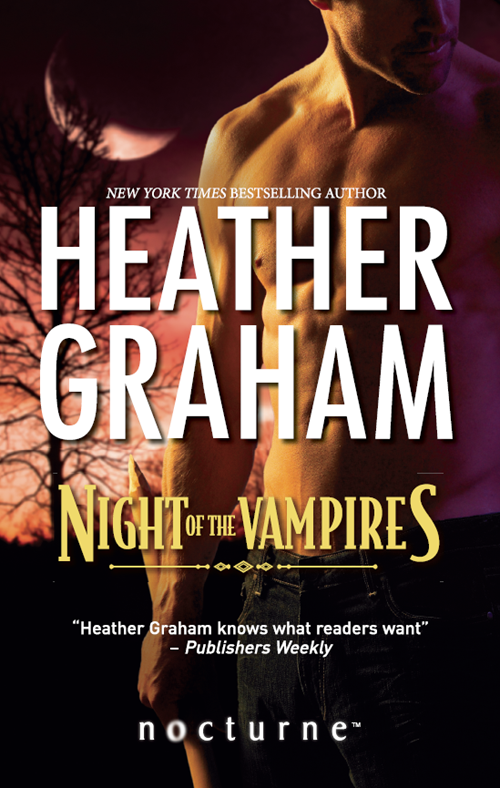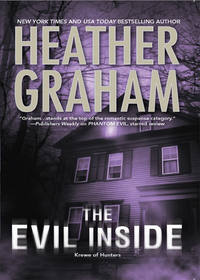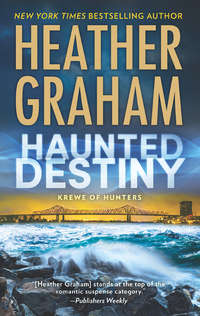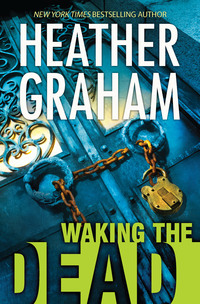
Полная версия
Night of the Vampires


Praise for the novels of New York Times bestselling author Heather Graham writing as Shannon Drake
“Drake constructs a well-drawn plot and provides plenty
of sexual tension and romantic encounters as well
as exotic scenery.”
—Publishers Weekly on The Pirate Bride
“Bestselling author Drake…keeps Ally’s relationship
with her aunts and godparents playful, forming an
intriguing contrast with the grim progress of the murder
probe, while satisfying romantic progress and rising
suspense keep the book running on all cylinders.”
—Publishers Weekly on Beguiled
“Drake is an expert storyteller who keeps the reader
enthralled with a fast-paced story peopled with
wonderful characters.”
—RT Book Reviews on Reckless
“[Shannon Drake] captures readers’ hearts with her own
special brand of magic.”
—Affaire de Coeur on No Other Woman
“Bringing back the terrific heroes and heroines from
her previous titles, Drake gives The Awakening an extra-special touch. Her expert craftsmanship and true mastery of the eerie shine through!” —RT Book Reviews
“Well-researched and thoroughly entertaining”
—Publishers Weekly on Knight Triumphant
Night of the Vampires
Heather Graham

www.millsandboon.co.uk
With lots of love and all best wishes to an extraordinary group
of up and coming authors—Jodine Turner, Tabitha Bird,
Karisa Hatfield, Autumn Dawson, Lynn Brown, Sharon Duncan,
and Leslie Bard. My “girls” from New Orleans!
PROLOGUE
THERE WAS JUST something about the man.
Kim knew it from the moment she first laid eyes on him.
It was just turning from summer to fall, and the day was beginning to die. Dust dazzled in the streaks of color that still formed the sky as the sun sank, while, already, the bountiful full moon was starting to peek out and rise into what would become a velvet and star-studded night.
He was the most unusual man. Even motionless, he compelled attention—she had simply known he was there the minute he had come to stand beneath the gnarled oaks. His stature was impressive, his very stillness somehow provocative.
There was a sadness about him, a melancholy, really, that drew Kim Forrester in despite the amazing bounty of handsome, wealthy and eligible bachelors in the room. He was tall—certainly a plus—extremely fine in physical appearance and with the requisite broad shoulders offsetting a lean waist. His hair was smooth and dark, his face clean shaven. He wore an elegant gray evening frock coat with a crimson brocade vest and a fine, matching stovepipe hat.
Something undeniable informed his movement. Sleek, like a great cat. Fluid, as if he were filled with confidence. This was strange, because Kim did not know him, and she knew most of the young bucks here, the sons of the most affluent men in the affluent community of exceptionally fine houses along the battery of Charleston, South Carolina.
“I do declare!” Marybelle Claiborne said, whisking her fan a thousand miles an hour. “That gentleman, why, he is just scrumptious! So darkly dangerous, mysterious, and—downright alluring!”
“He’s not from here,” Alice Payne said, sniffing, her nose in the air. “I’ve heard there’s something quite scandalous and horrible in his past!”
Alice Payne was known for her darling and elegant button nose. In Kim’s silent opinion, it gave her the appearance of a little piglet. Adorable, but a piglet all the same.
Kim forced a smile. She’d promised there would be no scenes here. In her mind, the balls were mindless endeavors where parents tried to sell off their daughters like chattel, hoping for the highest prices and the very best family alliances. Ah, and alas, so much for the pride of America, the people who would not bow down before kings! Here, there was a new king, and it didn’t even have a soul: cotton. Sugar, of course, was in the royal court, and land meant everything. It provided a palace for the king.
“So seductive, yes, and scandalous. Why? We don’t know, do we? And that’s part of what makes him scandalous! They say that he’s from Texas, that he’s wealthy beyond measure,” Julia Lee chimed in. She winked. “He’s given the other fellows a run for their money. I believe he’s come here with Lieutenant Weston, and I believe that the lieutenant befriended him at a cattle sale. Business has brought him to Charleston. And we are, of course, my darlings, known for our Southern hospitality!” She rolled her large blue eyes.
As they watched the distant figure, Benton McTavish strode out to where the young ladies stood, sheltered by the leaves of a giant oak. He greeted them all with a swaggering bow and the tilt of his hat. “Afternoon, ladies. If you’re gathered here in number for fear of the newcomers amidst our group, let me assure you. We of your community—”
He meant social rank, Kim was certain!
“—will absolutely assure that no harm will come to the damsels of Charleston!”
Kim looked away, teeth gritting. Benton McTavish never lifted a finger to do an honest moment’s work. He rode to the hounds, drank brandy and smoked cigars and pretended to know about his father’s business. Proud as a peacock over his sexual prowess, it was rumored he had already sired several children with one of the beautiful young slaves on his father’s plantation. She wondered how the poor thing bore his attentions, but she knew as well that the woman had no choice. She hoped that at least she received lighter household duties in exchange for those she was forced to perform upon her back.
“Why, Benton, we’d never be afraid, not with big, strong fellows like you around,” Alice said, slipping her arm through his.
Kim turned around, pretending great interest in the golden color of an oak leaf, lest she look straight at Benton and gag.
“Shall we, ladies? A true pleasure to escort you all in! I do believe that our supper is about to be served.”
Kim hung back. She watched them go, wondering if, when they noticed that she wasn’t with them, they would then discuss her as freely and maliciously as they had the stranger. As hard as her mother might try—as successful as she’d been in seducing Kim’s very rich stepfather—Kim would never be among these elite. She was from the Caribbean, not Charleston, and her beauty seemed a curse, a cautionary tale about the seduction of good men, and nothing more.
It was thus that she was standing when the man came to her at last.
He smiled ruefully, and seemed to realize that she was here and yet far away, and among the crowd yet not of it.
“Miss, you seem at a loss. May I escort you in?”
His voice was rich, deep, cultured and bore an accent of the Deep South. The sound of it was like a sweep of honey into her bones. His eyes were darker than ebony and yet seemed to have a glow brighter than hell’s fire.
“Forgive me. My name is Fox. I’m here at the urging of a Lieutenant Weston. I don’t mean to be rude or impertinent in any way.”
Kim found herself smiling. Of course not—not with that accent. He had been born and bred to play the game.
Her smile faded, and she frowned. A chill, and then a rush of heat flashed through her.
Fear.
She knew.
She knew because of her mother. Her mother, who had been raised in the Caribbean, who had been the grandchild of—
To her surprise, the sensation that had overcome her disappeared just as quickly. Her smile returned to her features. There was something so tragically sad about his eyes.
Looking at her, he somehow knew that she knew. The melancholy air about him deepened. “I would never hurt you,” he said simply. He opened his mouth, as if there might be more explanation, but he repeated, “I would never hurt you.”
She nodded. She thought about her mother, and the change that had come over her after the death of her father—her increased obsession with wealth and social prominence. She thought about her high-and-mighty—and quickly acquired!—stepfather, and the less-than-honorable way he looked at her when her mother wasn’t watching.
She thought about the way her mother had spoken to her this very morning.
We will see you married off, young lady, betrothed today, and that is that. And if you don’t choose among those who are proper, I will choose for you, and you will do as you are told!
“Miss?”
“My name is Kimberly Forrester,” she told him. “Kim.”
“Miss Forrester.”
“Kim, please,” she whispered.
“Hardly proper.” And his crooked smile was beautiful; he made her feel as if she were melting into the earth.
“Neither is this.” She came closer to him.
Not proper at all. But her life was a sham of obedience, and she loathed the life she had been intended to lead. Women were well-groomed puppets. They followed ridiculous rules. They turned away while “men were men” and lived with the shame and, in time—as she had seen too often—the bitterness and hatred.
She knew that she wanted something different.
She wanted life, passion, something real—if only for a moment.
“Careful,” he warned, looking down at her where she stood, so close. Those eyes of his were pure fire. “I’m not…I’m not the one to give you what you need.”
“You will never understand what I need, Mr. Fox,” she assured him.
“Escape,” he said flatly.
“And can you help me escape?” she whispered.
“That…but little else. You don’t understand—I can’t, I won’t, I haven’t ever been able to stay near those…those I have loved, or those who touch my soul.”
She lowered her head for a moment. Loved. Once upon a time, he had loved someone. And he knew what he was. Just like those playing this game here tonight, this game of charm, this charade of decency, he knew how to play the game he must.
She stared into his eyes. “I want you to help me. Take me away. Get me away from this awful place now.”
“It’s not so awful,” he told her. “There is a certain honor here, as well. There is loyalty, and many a man here is a good man.”
“Not one who might be intended for me,” she assured him. “Please. I’ll never look back. And I’ll expect nothing in return.”
He wanted to stop her. She thought that he might be nearly as seduced as she, perhaps by her appearance, more likely by her boldness.
Or maybe it was just bloodlust for a willing victim.
And still, he wanted to stop her.
“Before the barbecue?” he inquired, his tone light and teasing, and again, she felt that she was desperately in love with just the sound of his voice.
“Now.” Her voice trembled; so did she.
He stared back at her.
“Do you really know what it could mean?”
“Yes.”
They were alone. Alone in the late day when the sun had fallen completely at last and the moon was riding high in the sky, and the echo of words and laughter and conversation had faded away.
He took her suddenly by the shoulders, and his hands were powerful, almost rough.
“Do you really know what it means?” he demanded.
“Yes!” she cried.
He shook his head, angry with her, angry with himself.
“Don’t you understand? I can’t be there to pick up the pieces. I can’t…I can’t stay. I can never stay. I can never stay long in one place. Don’t ask me this—Go. Go into your ball and marry the proper young fellow and bear fine young sons and—”
“Live with a man who will despise me in time as I despise him, and fade into the woodwork behind the fabric of charade?” she demanded softly.
“But you would trade it all—”
“Yes.”
Now he wasn’t melancholy. He was tortured, angry…and still beautiful. He seemed to sigh, his eyes meeting hers. He touched her hair, stroking, cradled her skull in his hand and drew her to him. “You may trade your very life,” he told her.
His lips touched hers.
And she didn’t care.
CHAPTER ONE
Washington, D.C.
“LET’S DO IT—let’s do this thing now,” Cole Granger’s voice was low and filled with grim conviction as he spoke to his three comrades.
They had quietly skimmed the stone wall surrounding the prison yard. Earlier in the night, a perimeter had been formed by able-bodied soldiers in the blocks surrounding the area, troops badly needed elsewhere holding the streets around this fortress. But now there were no guards left to stop anyone from entering, those who had been on duty having fled inside amid bullets and blades.
Not that it would help them.
This wasn’t a holding cell for the hardened criminal awaiting execution, or even for a pack of murderous madmen. Those incarcerated were guilty only of bowing before a different, Southern power, and they were being held only until the war’s end.
For several seconds, Cole Granger, Cody Fox and Brendan Vincent remained frozen in place, listening. Strange noises, soft cries, sucking sounds, eerie laughter—punctuated by bone-chilling shrieks and screams—issued forth from within the massive brick facade they faced.
“Truly, the situation is only becoming worse by the second, gentlemen,” Cole noted.
Brendan Vincent, veteran of many a battle and even many a war, nodded severely, his handsome and distinguished face set like a rock.
“Yes. Time to move,” Cody agreed. Cody—who knew exactly what they were up against, who had brought Cole into this strange, other battle that had nothing to do with North or South, blue or gray.
“Indeed—now.” Cole couldn’t believe he was saying the words, or that they were entering the main prison, that he was holding his breath and about to go into action against a horde of bizarre demons.
Again.
Hell.
Victory, Texas. Things had been going well there—so damned well that maybe they’d let down their guard a bit. But this wasn’t Victory, and Cole still wasn’t entirely sure what he was doing here, except that he’d seen the results of what was commonly known as “the plague.” It had come to the West, and, back then, Cole hadn’t believed what he now knew to be true. There was one thing that caused the bizarre deaths, the madness, the murder and bloodlust of man tearing apart fellow man and woman.
One thing.
Vampires.
They’d come to his hometown and nearly annihilated the population, his people. They’d massacred almost everyone in Hollow Tree, too. But, thanks to the arrival of Cody Fox, they’d gotten things under control. So, improbably, now here he was, a Texas sheriff, called into the hallowed halls of a beleaguered nation, to help solve a plague again. A Texan, a Rebel, fighting monsters in the heart of the Union.
The key word in his strange situation was actually Texas. Out in the frontier of far west Texas, there were still folks who didn’t even know that a war was taking place. They were too busy trying to feed cattle and sheep or grow subsistence from a lot of dry and rocky land. Most such hardy folk got along with their neighbors, including the Indians, but it was also an area where the different Apache or Comanche clans might go on the warpath. Civil war was something happening far, far away, to someone else.
Cole himself had wanted no part of it. Hard to say who was right and who was wrong when the abolitionist John Brown had flat out murdered slave owners in Kansas, and when the guerilla retaliation had been flat out murder, as well. John Brown had hanged at Harpers Ferry, and Robert E. Lee, sent out to apprehend the man, was now head of the Confederate Army. It was a mess of tangled loyalties all around, and among men who used to be brothers.
It was death. The death of the youth of one country, torn asunder; and it was mothers crying over the loss of their sons, little more than babes, because war always killed the fit, just as it killed the beauty of youth. Confederates were ripping it up as amazing cavalrymen and sharpshooters, naturally, because they mostly lived off the land, while their Northern brethren were simply whopping down hard on the South because they had numbers—numbers of men, numbers of weapons, numbers of financiers, numbers all the damned way around.
So many dead now.
The war was over States’ Rights, and the main right that many of the states wanted had to do with slavery, while half the boys fighting on the Southern side couldn’t afford a good horse, much less a slave. They weren’t really fighting for themselves but someone richer. Always someone richer.
It was a mess to begin with. It was horrible; it was ugly, it was heartbreaking.
Death, horror and bloodshed.
Then throw in a few vampires.
But, then, you could go on forever and not even know about the vampires. Most didn’t. The creatures had to slake a bloodlust, but they worked around the whole killing and draining human being thing by feasting on cattle—just like man himself feasted on beef. Then again, Cole knew a few folks who didn’t eat much meat at all—they lived on the land, consuming mass quantities of vegetables and beans and the like.
There were no vegetarian vampires, he thought wryly. Not that he knew about, anyway, but some were better than others, some had to be.
Cody, for instance. Well, half of Cody.
“Cole, five o’clock!” Cody Fox whispered to him.
He turned; the shadow was just slipping up behind them. He saw it, and quickly assessed his supply of weapons. He wanted to keep it quiet—didn’t want the creature screaming and alerting others.
A stake.
Quick and hard, straight through the heart…his aim needed to be good—
The shadow pounced, becoming substance, the flesh and blood of something that had once been human. It started to snarl, gnashing its teeth, but Cole moved swiftly, his stake honed, his aim true. He rammed the creature through the heart, pinning it to the wooden door marked Warden. Unless it was the leader, an old vampire, it wouldn’t turn to ash. No, this one wouldn’t. It was wearing the tattered remnants of a uniform, butternut and gray—a recent soldier. The fellow had been a prisoner here. Already beaten and bested at war, he was now dying in truth, pinned by the stake. The thing’s eyes widened and seemed to dampen with sorrow; its jaw continued to work. It—he—looked at Cole with a split second of humanity, and there seemed to be gratitude in the eyes.
Cole felt his heart squeeze. The thing twitched and went still.
Brendan stepped forward, a bowie knife in hand. A second later, the head fell to the floor. Brendan jerked the stake from the creature, returning it to Cole with a nod.
Once the rush began, there wouldn’t be time for such thoroughness, neither in the killing nor in the covering up of their deeds. Brendan, a Unionist to the core, could manage the Union authorities and make their actions disappear if need be.
After all, it was Brendan who had gotten them here tonight. Cody Fox, who had come to Victory in a time of need and become a damned good friend. He had been military with Brendan, but Brendan had been in the service his whole life—right up to and into this War of Northern Aggression, as Texans called it. Not that that stopped him from coaxing Cody Fox out to Victory, Texas, to stop the infestation that had killed so many Southerners out there. Nonprejudicial infestation—the damned vampires didn’t care much if you were free, slave, white, black, red, yellow, old, young, man or woman.
The bastards and their plague could certainly get around—here they were now, in D.C.
Hell. Ah, hell.
Maybe a Texas sheriff shouldn’t be in Washington, D.C.
Maybe he was even a traitor, in a way. There was a sad irony to this. Here he was, a Texas sheriff, with a ragtag band in a Federal POW camp, having to put down not just the Union guards, but his Southern brethren, as well.
But Cole knew himself, when he’d heard about the madness, it wasn’t going to matter to him any if the new bloodshed was occurring in the North, the South or Timbuktu, he was in on stopping it. Humans were humans, and that was that. He’d seen what the vampires could do, and he’d fight them with his fellow man, no matter what label anybody wanted to put on anyone.
God knew where they’d really come from, the whole damned war was so crazy, brothers choosing different sides, Lincoln’s wife’s family all in the South, fathers finding their own sons dead on the battlefield.
And now—this. No matter who was what and what uniform went on what man, there was no going around this.
“They’re going to be coming en masse any second now,” Cody said quietly. He looked at the others; they nodded to one another and stepped forward.
“Best we can, let’s pick them off before the numbers flood in,” Cole said.
“Oh, yes, yessir. As quiet as can be until…” Brendan said.
They all knew what he meant.
It started slowly. A few of them sensing—or smelling—fresh blood. They came slinking out along the walls, unorganized, instinct and bloodlust guiding them. Cole picked off another two, and Cody caught a couple while Brendan kept his keen eyes out, giving the warnings.
Then Brendan shouted, “They’re coming in force!”
And they did. Confederate and Union soldier, prisoner and guard, old and young. They arrived without further warning.
The first wave were all young vampires, or so it seemed. They weren’t turning to mist, weren’t moving at the speed of lightning. They were awkward, untutored. They hadn’t been diseased slowly, properly; they had been taken in a frenzy and, in turn, they were more like a sad and ragtag pack of stumbling, hungry corpses than creatures of wit and malice and true evil.
Vampires thrived in times of war and chaos. They could gorge themselves, and no one would really know what was going on—nobody could distinguish what was part of the war and what was part of an evil hunger. Vampires could be very clever, naturally keeping their numbers down by disposing of their food properly. Unless they were attacking an isolated people and had some luxury of time—such as with Hollow Tree or Victory—most vampires refrained from turning others. Mostly because they couldn’t always control them, and they didn’t like the competition. They could be restrained and clever, sliding right into society.
But vampires could also be like rabbits. Throw in a reckless, vicious few who didn’t seem to care about competition, and suddenly they’d be coming out of the woodwork…and wild. The feeding here had been a careless one like that.
A Union guard staggered toward Cole, his head cast to the side. His face was gray, his throat a raw and bleeding mass where something had ripped it away. The three men were at a set distance from one another; they had learned how to watch one another’s backs. Cole moved straight forward, Brendan and Cody flanking him.
The creature went down easily with a single strong slash of Cole’s sword.
A boy came next. A drummer boy, perhaps. He couldn’t have been more than thirteen or fourteen.
Some distant mother’s child, not dead by canon fire, or the enemy’s intent, but dead when he should have lived to go home one day, and tell his children and grandchildren tales of the great conflagration, and how it had ended in time, when people became reasonable again. What would come, he would never know.









